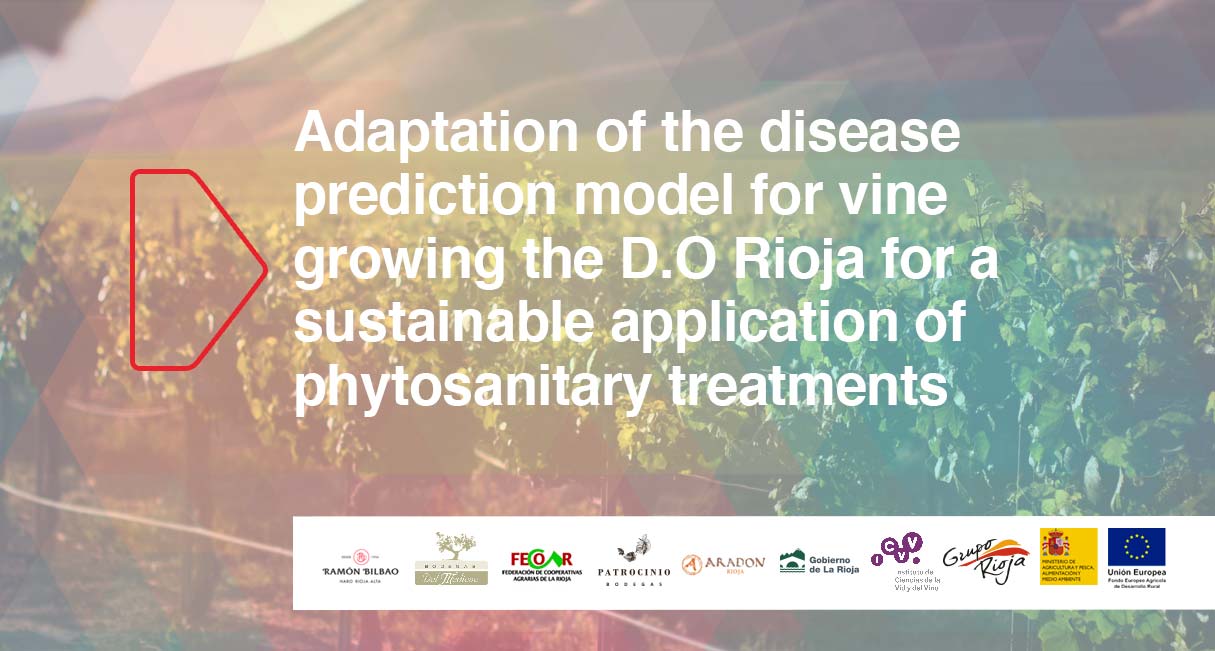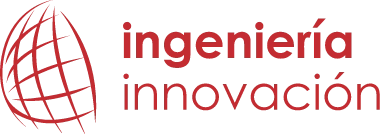[:es]
Grupo Rioja coordina un grupo operativo que se propone desarrollar el proyecto de I+D “Adaptación de modelos de predicción de enfermedades en el cultivo del viñedo en la DOC Rioja para una aplicación sostenible de tratamientos fitosanitarios”.
Por primera vez, los fondos que destinan la Consejería de Agricultura del Gobierno de La Rioja, el Ministerio de Agricultura y FEADER financian el trabajo de estudio y el planteamiento de posibles proyectos, en este caso, con una dotación de 30.000€.
También por primera vez, a las bodegas asociadas Ramón Bilbao y Bodegas del Medievo se han sumado la Asociación de Cooperativas FECOAR y las cooperativas Bodegas Aradón y Bodegas Patrocinio. Todos ellos trabajarán con el Instituto de las Ciencias de la Vid y el Vino, la empresa Encore Lab y el Servicio de Información Agroclimática de La Rioja.
El grupo operativo colaborará durante 6 meses para obtener la aprobación de un proyecto que permita a los viticultores practicar una agricultura más sostenible y rentable al reducir la aplicación de productos fitosanitarios.
En esta primera fase de formación del grupo se va a realizar, entre otras cosas, una revisión bibliográfica de los modelos de oídio para, a partir de ella, seleccionar aquellos que a priori están más adaptados a las condiciones locales. Posteriormente se realizará una validación de estos modelos comprobándose su funcionamiento.
El objetivo es utilizar esta información para disminuir la aplicación de tratamientos con respecto al calendario fijo que se practica de forma habitual para proteger al cultivo.
En concreto se propone trazar la caracterización climática de La Rioja Alta, con influencia atlántica, y La Rioja Baja, con influencia mediterránea, mediante el estudio de factores agroclimáticos y el estado sanitario, para validar un modelo predictivo del riesgo de oídio.
Para el desarrollo del proyecto se implementarán distintas técnicas de agricultura de precisión como los sistemas de información geográfica (SIG) y la tecnología CESENS y un nuevo sistema de monitorización con sensores de campo integrados en estaciones agroclimáticas propias.
El proyecto se alinea con las directivas del Parlamento y el Consejo europeo que establecen el marco de actuación comunitaria para conseguir un uso sostenible de los plaguicidas.[:en]
Grupo Rioja is now coordinating an operative group willing to develop the R&D Project “Adaptation of the disease prediction model for vine growing the D.O Rioja for a sustainable application of phytosanitary treatments”.For the first time, funds given by the Agriculture Council of the Government of La Rioja, the Ministry of Agriculture and FEADER are financing the study and planning of feasible projects, in this case, with 30.000 € in funds.
Also for the first time, the associated wineries Ramón Bilbao and Bodegas del Medievo will collaborate with the Cooperatives Association FECOAR and the cooperatives Bodegas Aradón and Bodegas Patrocinio. All of them will work together with the Vine and Wine Sciences Institute, the company Encore Lab and the agroclimatic information service of La Rioja.
This operative group will work together for 6 months in order to get the approval of a project to allow winegrowers to perform a more sustainable and profitable agriculture, as they reduce the application of phytosanitary products.
In this first training stage of the group some actions to be performed, among others, will be a bibliographic review of the oidium models to select those more adapted to local conditions. After that, a validation of those models will be performed in order to check their functioning.
The goal of this project is to use that information for diminishing the amount of phytosanitary product treatments regarding the fixed calendar used frequently for crop protection. Specifically, the proposal aims to describe the weather characterization of the “La Rioja Alta” region, which has an Atlantic influence, and “La Rioja Baja”, whose influence is Mediterranean. In order to do so, there will be a study of the agroclimatic factors and the crop health state, to make possible the validation of a predictive oidium risk model.
For the development of the project, several precision agriculture techniques as geographic information systems (SIG), the CESENS technology and a new monitoring system with field sensors integrated in own agroclimatic stations. The project will be aligned with the guidelines proposed by the European Parliament and Council that establish framework for Community action to achieve a sustainable use of pesticides.[:]
